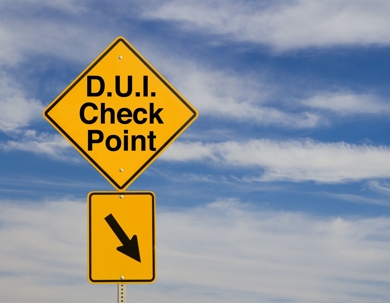Generally, yes. However, there are strict requirements law enforcement must follow. The Florida Supreme Court set guidelines and restrictions for law enforcement when conducting sobriety checkpoints.[i] If these are not met, a DUI arrest can be challenged.
When operating a sobriety checkpoint, specific rules must be established regarding which vehicles to select, how to detain them, assign duties to officers, and handle the vehicles. The Supreme Court stated it is “essential that a written set of uniform guidelines be issued before a roadblock can be utilized.” [ii]
These guidelines aim to limit the discretion of individual officers and ensure fairness and impartiality. Officers must strictly adhere to the detailed procedures provided in the guidelines when conducting sobriety checkpoints. Compliance with these guidelines is crucial as they regulate officer discretion and prevent arbitrary enforcement.[iii] Further, “[b] because DUI roadblocks involve seizures made without any articulable suspicion of illegal activity,” a neutral plan with specific criteria is necessary to limit the amount of police discretion while reducing the risk of abuse. Campbell states these guideline requirements are necessary to justify an intrusion on a citizen's liberty.[iv]
When a roadblock stop occurs, it is considered a seizure that intrudes upon an individual's rights. The legality of this seizure does not depend on reasonable suspicion, but rather on whether the officers follow a plan that includes specific and neutral criteria. This plan must provide clear guidelines that restrict the actions of individual officers during the search or seizure.[v]
There are specific duties and procedures to be followed by officers participating in the roadblock. “DUI checkpoints met requisite particularized advanced planning and strict compliance standards, where written guidelines were clear, reasonable, and did not permit random or arbitrary vehicle stops or allow officers to discriminately target particular persons, and every encounter with a stopped vehicle included a request for documentation and some preliminary questioning and observation for signs of alcohol impairment.”[vi]
It is crucial for law enforcement officers to adhere to the established roadblock procedure, which outlines the specific criteria for selecting vehicles to be stopped. This procedure is designed to eliminate any arbitrariness or discretion on the part of individual officers. As mentioned above, the requirement for neutral criteria in selecting vehicles was affirmed in the Jones and Campbell cases, emphasizing that officers must follow the prescribed guidelines without deviating from them. If officers randomly choose which vehicles to pull over, it will render the entire roadblock invalid. Therefore, it is essential for all officers involved in the roadblock to strictly adhere to the prescribed guidelines for vehicle selection to maintain its legality.
In sum, officers must carefully follow their written procedure manual that provides substantial detail for running the roadblock. Should they fail to do so, your attorney can challenge the stop invalid which could then result in suppression of any evidence discovered by law enforcement.
If you or a loved are need a criminal defense attorney in Naples, Florida, then The Law Offices of Cavanaugh & Cavanaugh are the attorneys for you. Call us today or reach out to us online for a free consultation.
[i] Jones v. State, 800 So. 2d 351 (Fla. 4th DCA 2001)
[ii] Jones at 438
[iii] Campbell v. State, 679 So. 2d 1168 (Fla. 1996)
[iv] Campbell at 1170
[v] Rinaldo v. State, 787 So.2d 208 (Fla. 4th DCA 2001)
[vi] Rinaldo at 211

